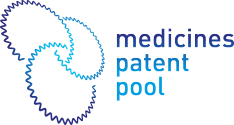New Statement from the Executive Director
3 December 2014
MPP’s Executive Director Greg Perry participated in a panel presentation in London, Monday, December 1 for the launch of a new APPG report on access to medicines. Please find below his prepared remarks.
I thank the All-Party Parliamentary Group on HIV and AIDS for the invitation to speak today and for its long-term commitment to ending the AIDS crisis. I also welcome the APPG’s new report, “Access Denied,” which provides an overview of where we stand five years after the Group first warned of a “treatment timebomb” — increased demand for HIV treatment, increased patenting of HIV medicines and flat-lined funding for HIV programmes.
Although we are here to discuss the challenges we all face in reaching new international AIDS targets, we also need to review how far we have come over the past half-decade. We now have more than 13 million people on treatment (up from approximately five million in 2009). The number of children receiving treatment also has increased significantly, from almost zero in 2006 to 760,000 in 2013, thanks in a large extent to UNITAID-funded projects. The success in scaling up treatment is due to a number of key factors working in parallel — major international funding, strong national public treatment programs, new and improved medicines and increased availability of first-line antiretrovirals (ARVs) in generic form, political pressure from communities of people living with HIV and increased access policies.
UNITAID established the MPP to increase access to key WHO-recommended medicines and we remain entirely funded by the organisation. At the time of the first report, the MPP was just an innovative idea. It has now been firmly established and has matured into a nonprofit that is a central part of the international effort to overcome the epidemic. It is estimated that MPP licences should help the international community save between 1.18 -1.4billion dollars over the coming years.
From MPP’s side, the last five years have been very fruitful. We have licences on 11 priority ARVs from five different patent holders. In the past year, we have concluded agreements on promising new antiretrovirals (ARVs) such as dolutegravir (DTG) and tenofovir alafenamide (TAF), which will speed recently registered or promising pipeline drugs to developing countries in the right formulations and at affordable prices. In the past, it has taken between five to ten years for new ARVs to become available as quality-assured generics for sale in developing countries. We think we can bring this time lag down to about three years.
The MPP is working with 10 generic manufacturers and we have recently signed new sub-licence agreements with Desano and Emcure for DTG and with Cipla for atazanavir, increasing our pharmaceutical development projects to more than 50. Our licences on first line medicines like tenofovir have already helped to open up the market in many middle-income countries. To date, MPP’s generic partners have distributed 1.5 billion doses of tenofovir-containing products.
The MPP is a voluntary licensing organisation and works in partnership with industry and other stakeholders such as communities of people living with HIV and governments. Last month’s Access to Medicines Index clearly recognized that the licences negotiated by the MPP are more flexible and provide the broadest geographical scope among all voluntary licences. They also include the most pro-access terms and are the only ones that are made publicly available and include patent listings.
The “Access Denied” report identifies many obstacles to reducing the treatment gap — stigma, poor supply chain management, weak health care systems, lack of access to viral load testing , drug registration, reduced international funding, continued access to affordable generic medicines, especially second and third-line treatment, and a lack of R&D in paediatric medicines. UNITAID is addressing many of these problems. At MPP we are committed to meeting the report’s recommendation of working with the pharmaceutical industry, multilateral organisations and governments to continue to broker agreements on second and third-line treatment and to improve health outcomes for children.
Late last year, the MPP signed an agreement with Bristol-Myers Squibb on ATV, the WHO-preferred medicine for second-line treatment. In May, we launched the Paediatric HIV Treatment Initiative (PHTI), together with DNDi, CHAI and UNITAID, to accelerate the development and availability of the priority WHO-identified paediatric formulations. The PHTI is already working with several stakeholders, including industry, to develop better adapted medicines for children.
And just today, we announced a new agreement with AbbVie for paediatric lopinavir and ritonavir. The licence is crucial for many reasons. LPV/r is part of the WHO-recommended regimens for young children under three, those most likely to die from HIV/AIDS. In its current form, LPV/r is not suitable for young children. The licence allows companies and generics based anywhere in the world the right to reformulate LPV/r in more child-friendly versions for countries where 99% of children live with HIV.
Finally, the APPG’s report also stresses the need to improve access to medicines in middle-income countries. This is certainly one of the most delicate issues in access to medicines today and one that goes significantly beyond the MPP and also beyond HIV.
At the MPP, we are pleased that all our licences enable between 60-85% of all middle-income countries to benefit from low-cost generics. We recognize however, that there is a need to explore ways to enable more countries to access affordable ARVs, particularly where there is high inequality, weak health systems or specific barriers for key populations. In our recent licence with ViiV Healthcare for DTG, the MPP succeeded in expanding the geographical scope by segmenting between private and public markets and introducing differentiated royalties based on countries’ per capita income.
I am grateful to the UK Government and the All-Party Parliamentary Group for their support of the MPP in our first years. Our aim is to continue our work with all stakeholders to ensure rapid and sustained progress.







